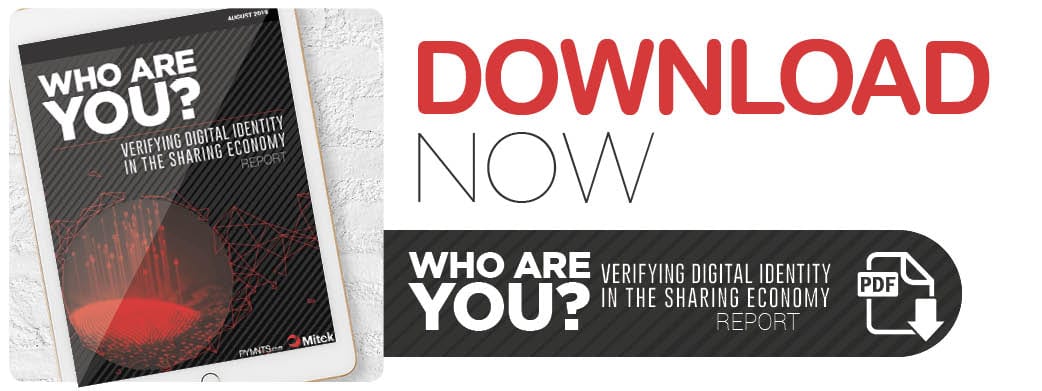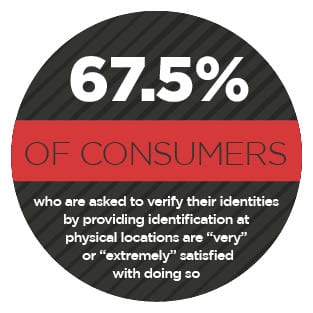REPORT: What Sharing Economy Platforms Don’t Get About Digital ID

 Sharing economy platforms have permeated every aspect of consumers’ lives. Some 60.1 million Americans hitch rides through ridesharing offerings like Uber or Lyft, for example, and 41 million book travel or accommodations with homesharing services like Airbnb or Hotels.com. Meanwhile, 19.5 million use talent platforms like Fiverr or Freelancer.com to find employment. The list goes on.
Sharing economy platforms have permeated every aspect of consumers’ lives. Some 60.1 million Americans hitch rides through ridesharing offerings like Uber or Lyft, for example, and 41 million book travel or accommodations with homesharing services like Airbnb or Hotels.com. Meanwhile, 19.5 million use talent platforms like Fiverr or Freelancer.com to find employment. The list goes on.
 Overall, some 111 million consumers use some type of sharing economy platform to enhance their day-to-day life. Hiding among these legit users are fraudsters and other bad actors that are increasingly targeting sharing economy platforms.
Overall, some 111 million consumers use some type of sharing economy platform to enhance their day-to-day life. Hiding among these legit users are fraudsters and other bad actors that are increasingly targeting sharing economy platforms.
Unfortunately, many sharing economy platforms’ verification and authentication processes are poorly equipped to combat the growing risk of fraud. In fact, 71.5 percent of sharing economy platform users are asked to verify their identities by simply providing their email addresses when creating new accounts, and 64.5 percent are asked to provide their phone numbers. While this makes it easier for consumers to sign up and create accounts, it also makes it remarkably easy for fraudsters to pose as legitimate users.
How can sharing economy platforms revamp their security systems not only to enhance their fight against fraud, but also their users’ experience?
In the Who Are You? Verifying Digital Identity In The Sharing Economy Report, PYMNTS examines survey data collected from 3,585 American consumers to learn about how they access sharing economy platforms, how their authenticated and their satisfaction with various methods.
Among sharing platforms users we surveyed, 26.2 percent said they were asked to submit ID online, and 19.5 percent said they were asked to submit ID in person at a brick-and-mortar location when signing up for a new account. Among consumers who used homesharing platforms like Airbnb, these figures were even higher at 35 percent and 21.7  percent, respectively.
percent, respectively.
Sharing economy platform users who had to submit their IDs to create accounts also reported feeling highly satisfied with their chosen platforms’ verification processes. In fact, 68.8 percent of users who submitted their IDs online and 67.5 percent of those who submitted their IDs in person reported feeling very or extremely satisfied with how they were asked to prove their identities.
That said, the benefits of enhanced verification and authentication techniques extend far beyond enhanced user satisfaction.
To learn more about how stronger identity authentication and verification methods can enhance sharing economy platforms’ businesses and protect their users from fraud, click here to download the report.
About the Report
The Who Are You? Verifying Digital Identity In The Sharing Economy Report, a PYMNTS and Mitek collaboration, examines the demographic, economic and behavioral trends governing how consumers sign up for, log into and use digital sharing economy platforms. Our in-depth survey collected and analyzed response data from more than 1,500 American consumers to learn how their chosen platforms’ identity authentication and verification systems enhance data security and foster broader ecosystem growth.